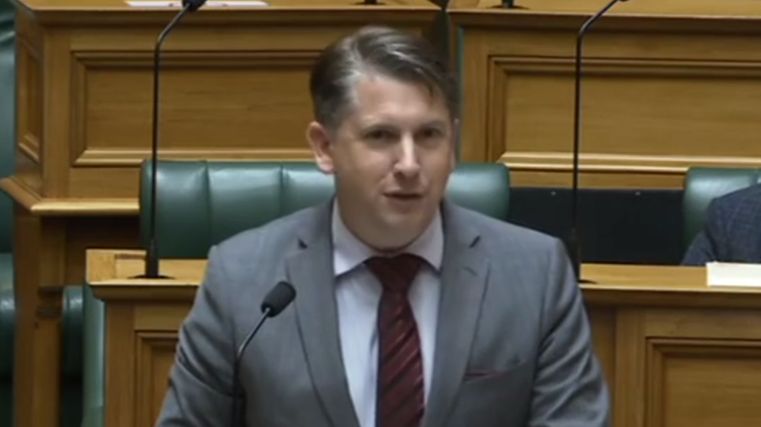MPs at loggerheads over clean car laws

The clean car standard and a feebate scheme have moved a step closer to passing into legislation following the second reading of the Land Transport (Clean Vehicles) Amendment Bill in parliament.
Politicians delivered speeches on the proposals over two days this week following the resumption of parliament for the year on February 8.
The bill seeks to establish the legislative framework for the clean car standard, which is also dubbed a fuel-economy standard, and the full clean car discount scheme.
Michael Wood, Minister of Transport, opened the debate and said the clean car discount, which currently offers rebates on battery electric vehicles (BEVs) and plug-in hybrids (PHEVs), had already been “extraordinarily successful”.
“The clean car discount has already led to an enormous increase in the number of clean vehicles entering the New Zealand fleet,” he said.
“This policy is already working. The implementation as it will happen after this bill has passed, of the Land Transport (Clean Vehicles) Amendment Bill, will ensure that we keep up that momentum.”
The discount was introduced in July 2021 and is set to become a full feebate scheme offering penalties and discounts based upon a vehicle’s emissions if the bill passes into law.
Wood, pictured, has set his sights on the scheme kicking in from April 1 after delaying its introduction by three months because of the Covid-19 pandemic and to give the industry more time to prepare.
The clean car standard is also part of the bill and will aim to reduce the overall emissions of new and used imports by imposing fines based on emissions targets that are set to get lower each year.
If approved by politicians in its current form, the standard is expected to start operating in the second half of this year for accounting purposes before being fully rolled out from the start of 2023.
The debate on the bill took saw 13 MPs deliver speeches over February 8 and 10 before a majority of politicians voted to agree to amendments recommended by the Transport and Infrastructure Committee and for the bill to be read a second time.
Both votes saw Labour, Green and Te Pati Maori MPs support the moves, while National and Act voted against.
The bill now moves to a debate by a committee of the whole house, where MPs can scrutinise the bill in detail and propose changes through supplementary order papers.
After that the proposed legislation will go to a third reading for a final vote by politicians on whether to accept or reject the bill. If it is passed it then faces the formality of royal assent before becoming law.
Political debate
Wood told parliament the number of electric vehicles (EVs) coming into New Zealand and being registered has roughly tripled since the introduction of the clean car discount.
“Since 1 July, and the discount coming into effect, the average emissions of new vehicles coming into New Zealand have decreased by 15 per cent across the fleet,” he added.
“It took eight years, before 1 July 2021, for us to achieve that reduction in emissions previously.
“New Zealanders are voting with their feet. They're voting with their wallets. They want cleaner and more affordable vehicles for themselves, their families, their communities and for our environment.”
Wood said the clean car package is designed to help the government reduce emissions from the transport sector by 41 per cent by 2035, with the extra aim of zero-emissions vehicles accounting for about 30 per cent of the fleet by the same date.
The minister told the debate the clean car standard is about supporting and incentivising importers to get a cleaner stock of vehicles into the country.
“It incentivises them by having a steadily increasing target for bringing cleaner vehicles into New Zealand year by year.
“Importantly, and many of those New Zealand-based importers tell me this, for the first time it is giving them leverage when they go back to their head offices in Europe or Japan or Korea or China to say, ‘we need to get cleaner vehicles into New Zealand’.
“They previously haven't had that, because we haven't had a standard, so we've got the dirty vehicles.
“The standard and the discount work together to increase the supply of clean vehicles and then to incentivise and support Kiwis to get into them.”
Simeon Brown, National’s transport spokesman, said his party opposed the bill because it will increase costs for consumers without delivering the necessary reduction in transport emissions.
“The Motor Industry Association and the Vehicle Importers’ Association [sic] made it very clear that these targets are too ambitious in the short term,” he told the house.
“If this policy, as I predict, will end up with the number of newer vehicles moving into the fleet slowing down and the number of people holding on to their vehicles for longer, what we'll end up with is the emissions being emitted from our vehicles actually plateauing rather than reducing, as this government seeks to do.
“National wants to see a transition to lower-emissions vehicles, but we believe on this side of the aisle that you work with the industry; you make sure the targets can actually be delivered on.”
Brown also raised concerns that the bill unfairly targets the likes of farmers and tradies who need a ute for their work, suggesting they face having to pay, on average, 15 to 20 per cent more for their vehicles.
Ricardo Menendez March, a Green MP who was also on the select committee that considered the bill, says marques and importers will have to rethink how they do business under the legislation.
“We heard a lot of resistance from industry to this shift in legislation because they know that they will have to change their habits,” he said.
“They know that we will no longer be their dumping ground [for polluting vehicles] and that they will have to change the way that they operate.
“Low-income people, if they're lucky, are buying second-hand vehicles, and what this bill will do is it will guarantee that people will have cleaner vehicles at their disposal in the second-hand market.”
Meanwhile, the Act Party’s Simon Court described the bill as “two taxes dressed up as an ugly climate fairy” and said the bill fails to address the supply-side problem of securing enough low-emissions vehicles.
“These vehicles being taxed include utes, tradies' vans, and, of course, larger vehicles that larger families … need … they are the ones who will be hit,” he told the debate.
“If you apply a tax at the border and if you apply a tax at the lot where people go to buy a new or second-hand car, then all you'll be doing is taking money out of Kiwis' pockets because we can't supply you with the vehicles.”
Click here to find out more about the Land Transport (Clean Vehicles) Amendment Bill and watch videos from the parliamentary debate.





